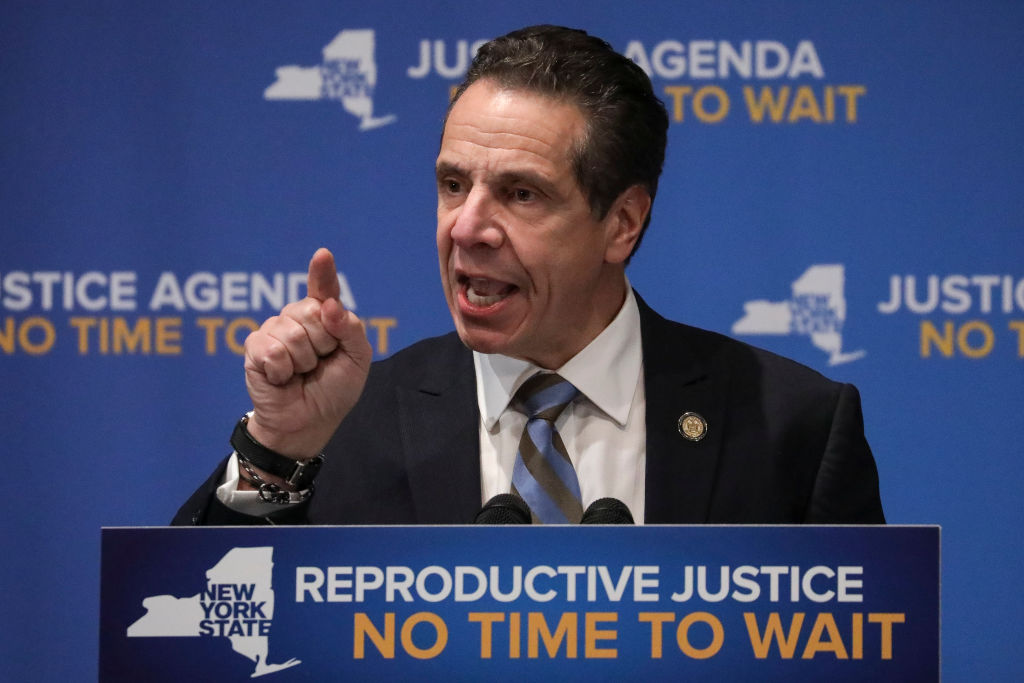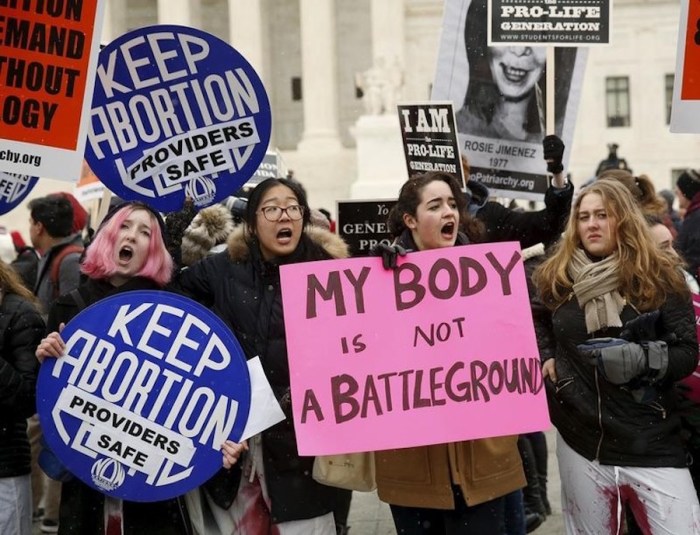After the appointment of Brett Kavanaugh to the U.S. Supreme Court and the nomination of William Barr for attorney general, the Trump administration has taken a clear stance on the subject of abortion rights — against. Seeing an existential threat to the protections guaranteed by the Roe v. Wade case in 1973, the New York State Senate has passed the Reproductive Health Act, guaranteeing women’s rights to bodily autonomy within state lines.
“We thought at that time, that because it was so fundamentally right for women to have autonomy over their body, we thought that it was a barrier we would never have to face again,” said State Senate Majority Leader Andrea Stewart-Cousins at a press conference. “Whenever you have something that momentous, there’s always someone who wants to go back to the way things were. so brick by brick, they began to rebuild that barrier. … They were looking for a moment to overturn this decision that changed our lives.”
The law states that comprehensive reproductive health care is a fundamental right, and more specifically that people in New York have the right to seek an abortion within 24 weeks of the start of their pregnancy, or at any time if the pregnancy is not viable or a risk to the mother’s health.
“As attacks on reproductive rights grow around the country, emboldened by the Trump administration’s efforts to stack the courts against women, updating New York’s abortion law to protect the rights guaranteed by Roe v. Wade is more critical than ever,” said NY Civil Liberties Union executive director Donna Lieberman.
The law also changes the previous penal code to make the definition of homicide now exclude the abortion of a fetus older than 24 weeks.
“‘Person,’ when referring to the victim of a homicide, means a human being who has been born and is alive,” the amended law reads.
While Justice Kavanaugh has previously stated that Roe v. Wade is settled and “important precedent,” CNN has reported that he has expressed willingness to uphold laws that severely restrict abortion rights by creating de facto barriers to the process.
“We have led the way on women’s rights like no other state,” Gov. Andrew Cuomo declared at a press conference with Hillary Clinton earlier this month. “Period.”
New York already has a law on the books protecting abortion rights, but it was passed in 1970 and has not been updated since, and was not as expansive as those protected by Roe v. Wade three years later. Notably, as Stewart-Cousins pointed out, 12 Republicans voted in favor of the 1970 bill, but State Senate Republicans have blocked the updated bill since 2006.
The new law will go into effect the moment it is signed by Cuomo.
In the same Senate session, State Democrats also passed the Comprehensive Contraception Coverage Act, which requires insurance companies to cover contraceptives and voluntary sterilization procedures, and the “Boss Bill,” which prohibits workplace discrimination for reproductive health choices.
“We’re saying that here in New York, women’s health matters,” said Stewart-Cousins. “We’re saying that here in New York, women’s decisions matter.”

























